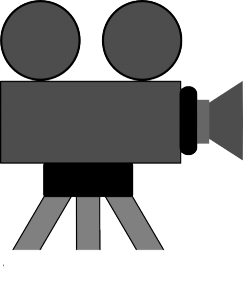ANS Nuclear Cafe Matinee: Large Hadron Rap!
The ANS Nuclear Cafe Matinee presents loyal readers-and loyal viewers-with an all-time great video: "Large Hadron Rap"!
-3 2x1.jpg)
A message from Curtiss-Wright
High-Temperature neutron flux detectors for Generation IV reactors and SMRs
The ANS Nuclear Cafe Matinee presents loyal readers-and loyal viewers-with an all-time great video: "Large Hadron Rap"!
The 14th annual North American Young Generation in Nuclear (NA-YGN) drawing contest is now underway! The drawing contest teaches 4th and 5th grade students about the wonders of nuclear science and technology by engaging them creatively. This year's theme is Roddy Nuclear Builds Tomorrow-with an emphasis on the importance of new plant construction for the future of nuclear and growing energy demands.
A free college-level internet course surveying the theory, design, and operation of commercial nuclear power reactors is starting soon! This course will be taught by Larry Foulke, PhD, PE, former president of the American Nuclear Society.
From the American Nuclear Society to teachers interested in the nuclear sciences
The Higgs boson caused quite a stir earlier this year when its discovery was announced on July 4. After all, the Higgs field, as proven by the existence of the Higgs boson, is basically the reason that matter has "mass" in our universe.
Running a nuclear reactor is so easy that undergraduates can do it. And they do, at the research reactor at Reed College in Portland, Oregon (by the way, that's where Steve Jobs went to school).
Labor Day is the traditional marking point for the end of summer-and time for back-to-school activities for K-12 students. Back to School season also provides an opportunity to help students understand the kind of work that nuclear engineers and scientists do. Your participation can interest a young person in pursuing an engineering career!
This past week, I had the privilege of participating in the Nuclear Technology Workshop for Teachers in Charlotte, N.C. The all-day event was part of the International Youth Nuclear Congress (IYNC)/North American Young Generation in Nuclear (NA-YGN) Public Information Day, and it had a great turnout-about 50 area science teachers were in attendance.
During my undergraduate studies in art school, I created a body of artwork about micro-organisms. After taking my two required biology courses, I was completely obsessed with cyano-bacteria and diatoms (they are still a central theme in my home décor). Learning that every cell in my body has mitochondrial RNA identical to these ancient life forms floored me, and made me feel completely connected to the planet and all of the other life on it in a very concrete way.
I have no special talents. I am only passionately curious.
The American Nuclear Society's Center for Nuclear Science and Technology Information and the ANS Outreach Department will sponsor a one-day teacher workshop on Saturday, June 23, in Chicago, Ill. The workshop-Detecting Radiation in Our Radioactive World-is for science educators, including elementary, biology, chemistry, earth science, physics, physical science, life science, environmental, and general science teachers. The workshop will be held the day before the beginning of the ANS Annual Meeting in Chicago.
What is life going to be like after fossil fuels?
The 2012 Nuclear Energy Assembly wrapped up this Wednesday evening in Charlotte, NC. The Nuclear Energy Assembly is the nuclear energy industry's annual conference, attracting leaders worldwide from all segments of the industry.
 Ready for the next leap in your career? Who doesn't like extra letters after their name? Well then, why not get a Professional Engineer license?
Ready for the next leap in your career? Who doesn't like extra letters after their name? Well then, why not get a Professional Engineer license?
This week's Nuclear Matinee takes a nostalgic look back to the dawn of the Atomic Age and an exciting new power source: "atomic energy."
ANSI strongly encourages all U.S. delegates to participate in international standardization meetings
Today's matinee is a foreign film feature: an excellent overview of the very basics of nuclear energy.
Decades of nuclear science in just two minutes! This dramatic video takes the viewer inside the world of atomic particles, describing a rather important difference between the encounters of alpha particles and neutrons when scientists direct them at heavy atomic nuclei. The scientist referred to in the video is Leo Szilard, who conceived the possibility of a nuclear "chain reaction" among many other important scientific achievements. This nuclear chain reaction is quite a ride- so enjoy!
 The 4th annual Texas Atomic Film Festival (TAFF) is being held April 26 to May 3, 2012. The festival attracts short films (3 to 5 minutes) produced by students in nuclear engineering courses at the University of Texas at Austin. A public screening of the films, which focus on nuclear and energy related topics, is being held on April 26 at 12:30 pm at the UT Student Activities Center auditorium.
The 4th annual Texas Atomic Film Festival (TAFF) is being held April 26 to May 3, 2012. The festival attracts short films (3 to 5 minutes) produced by students in nuclear engineering courses at the University of Texas at Austin. A public screening of the films, which focus on nuclear and energy related topics, is being held on April 26 at 12:30 pm at the UT Student Activities Center auditorium.